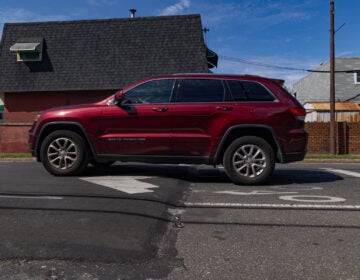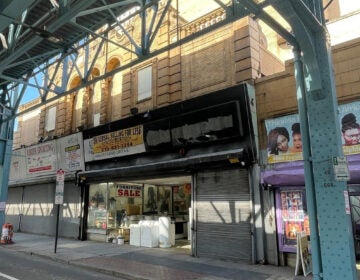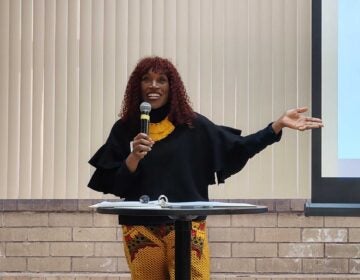Philly voters could make Office of Sustainability permanent

Accomplishments of the Mayor's Office of Sustainability include increases in the numbers of farmers' markets and community gardens. (NewsWorks file photo)
In his first year as mayor, Michael Nutter launched the Office of Sustainability in hopes of making Philadelphia the top green city in the nation. Whether the office itself is sustainable is now likely up to voters.
The City Council approved a measure last week to ask voters if Philadelphia should join the likes of New York and Boston in creating a permanent sustainability office.
The office has been charged with boosting recycling rates, cutting the city government’s greenhouse gas emissions, increasing access to local food, expanding tree coverage, and achieving dozens of other goals laid out in Nutter’s environmental plan, “Greenworks Philadelphia.”
Katherine Gajewski, the office’s director, announced in 2013 that the office had completed 43 of 166 initiatives, with 114 more under way.
“We’ve been able to increase our tree canopy, focusing on underserved neighborhoods, and so far we’ve planted 100,000 new trees,” Gajewski said during an interview Friday. “We’ve also been trying to improve access to fresh and healthy foods, particularly in underserved neighborhoods, and to do that we’ve been growing the network of farmers’ markets in the city. We’re now at over 315 farmers markets, up from just 230 in 2008.”
Mark Alan Hughes, the sustainability office’s former director, said increasing the city’s recycling rate from 5 percent in 2008 to more than 20 percent today has been among the office’s biggest accomplishments.
“It saves us money. It improves our environmental performance,” he said. “It also becomes a basis for engaging citizens in working together.”
Philadelphia’s green ambitions have not been without controversy. Some property owners fought against a stormwater-fee system aimed at limiting pollution until a cap was introduced. Commercial building owners have also expressed concerns about a recent requirement to disclose their energy usage.
With five employees, the Office of Sustainability receives about $750,000 in annual funding from the city government. Gajewski said it has brought in an additional $41 million in federal and private grants since 2008.
Throughout the next few years, the office plans to work with city agencies to determine how to best deal with the anticipated effects of climate change on Philadelphia.
The goal, Gajewski said, is to “understand what we need to be doing to proactively put ourselves in a position to be resilient to some of these climate impacts we expect to see.”
Councilwoman Blondell Reynolds Brown, who introduced the ballot measure, said she believes the Office of Sustainability will also help improve the city’s economy.
“It will further position Philadelphia’s competitiveness when it comes to small businesses and just growing green jobs,” she said.
If Nutter signs the legislation, as expected, voters will decide the fate of the sustainability office in the Nov. 4 general election.
WHYY is your source for fact-based, in-depth journalism and information. As a nonprofit organization, we rely on financial support from readers like you. Please give today.




